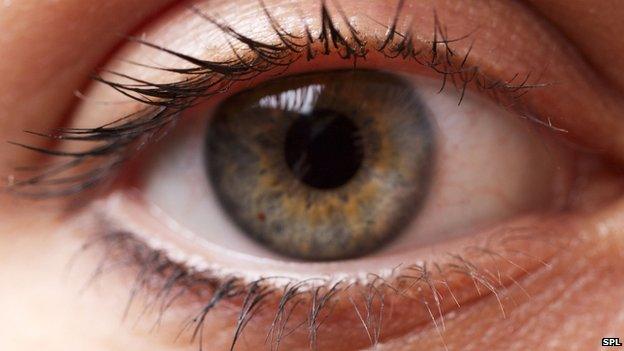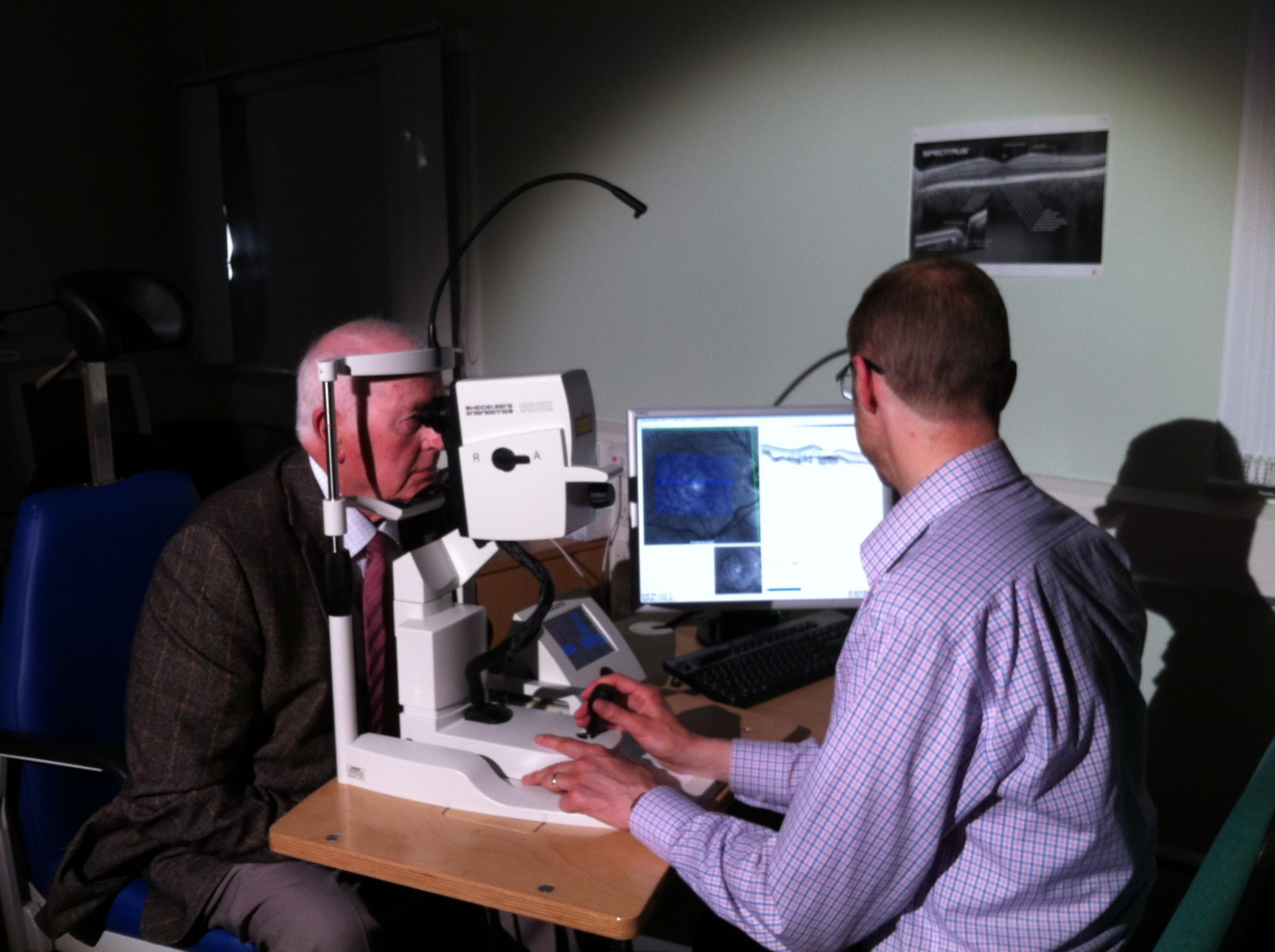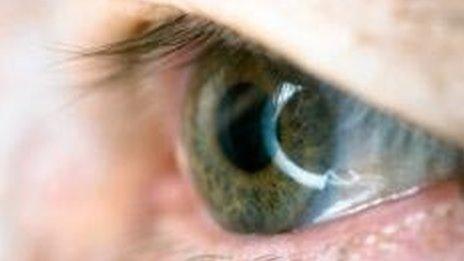Eye specialists call for NHS to use Avastin
- Published

A drug that prevents elderly people losing their sight should be routinely available on the NHS, says the Royal College of Ophthalmologists.
Avastin has been found in clinical trials to be safe and effective for patients with wet Age-Related Macular Degeneration (AMD), a major cause of sight loss in older people.
The Royal College says switching to the drug could save the NHS £100m.
Avastin is cheaper than the officially approved treatment, Lucentis.
Both drugs are made by Roche - but Lucentis is marketed by Novartis in the UK.
Effective and safe
Lucentis typically costs about £700 for an injection, but the price for Avastin is about £70.
Recent studies have concluded Avastin is just as effective and safe as Lucentis.
Doctors can prescribe it "off-label", but they are only supposed to do that if there is no suitable licensed drug.
Writing in the British Medical Journal, experts from the Royal College say regulators should find a way of getting round what they call the "bureaucratic hurdles" that prevent its use, and called for the General Medical Council and National Institute for Health and Care Excellence.
"Without unequivocal GMC and NICE support, ophthalmologists are understandably concerned that they may be assuming unacceptable personal liability by using an unlicensed drug when a licensed alternative exists," they write.
Hospital eye services are struggling to cope with demand, they warn.
"Consequently, patients may not be getting treatment when they need it and not getting the best results. The money saved by switching to bevacizumab (Avastin) could facilitate investment in these services.
"Either the regulators must find a way to license a drug without the sponsorship of the company that owns it or NICE must find a way to consider an off-label drug that is not being submitted for appraisal by its owners."
'Proper protection'
Cathy Yelf from the Macular Society said it agreed with the Royal College's view, and had been campaigning for for regulators to carry out an appraisal of Avastin for use in ophthalmology since 2010.
"We are aware that some Clinical Commissioning Groups are looking at ways of using Avastin. However, it is individual doctors who are legally accountable if an unlicensed drug is prescribed. It is not right that clinicians should be pressurised by the NHS to use Avastin without proper legal protection."
In a statement, Novartis, which markets Lucentis in the UK, said it was aware of the BMJ editorial.
"Lucentis and Avastin are different molecules. Each was approved by EU regulatory authorities for different usages. Lucentis is approved for use in the eye. Avastin is intended for use with cancer patients. These are real differences that are clearly established and recognized by regulatory authorities."
The company said patient safety was of paramount importance.
"Novartis believes that patients in the UK deserve access to medicines which are prescribed and used according to medical need and approved indications."
A spokesperson for the Department of Health in England said:
"Age-related macular degeneration is a very serious condition and there are already other licensed and NICE-recommended drugs available to treat this condition. Avastin is not licensed for this purpose and only the manufacturer is able to apply for a new licence.
"Doctors are free to prescribe unlicensed medicines and licensed products off label if they feel they are clinically appropriate for their patients."
- Published6 May 2012

- Published30 November 2011

- Published14 March 2013
